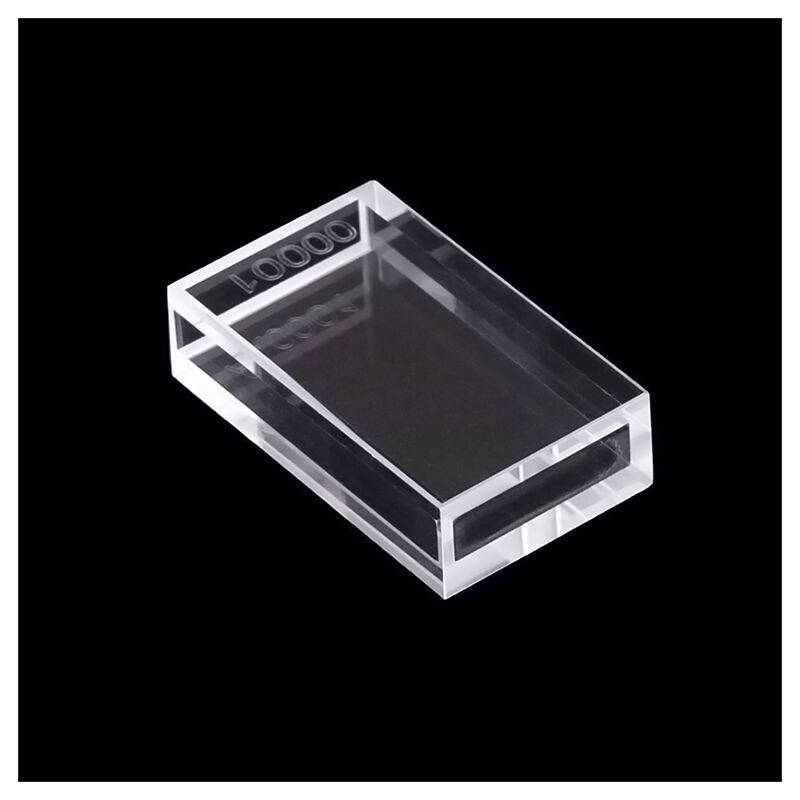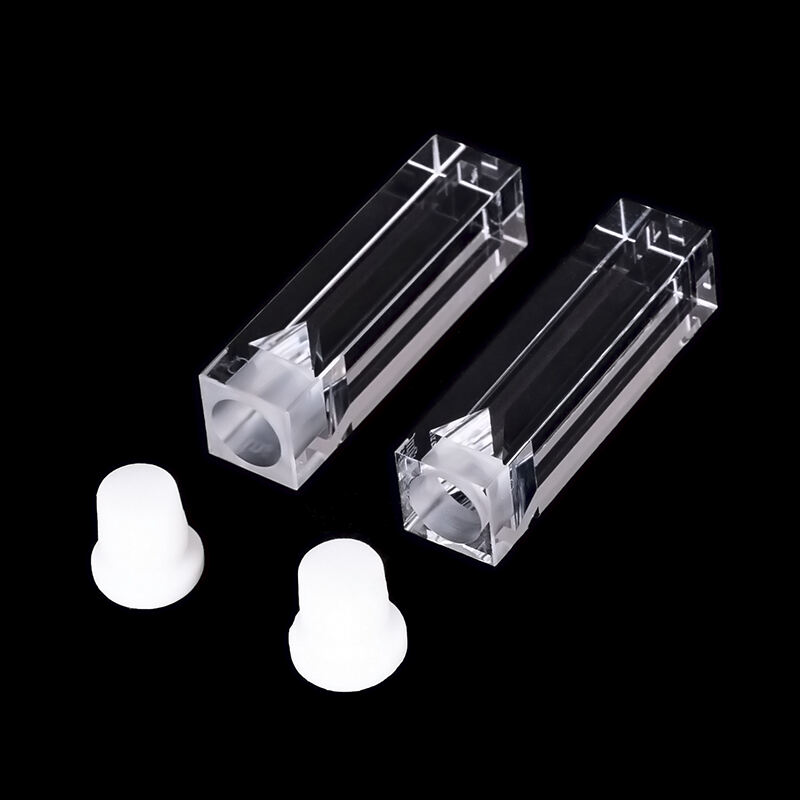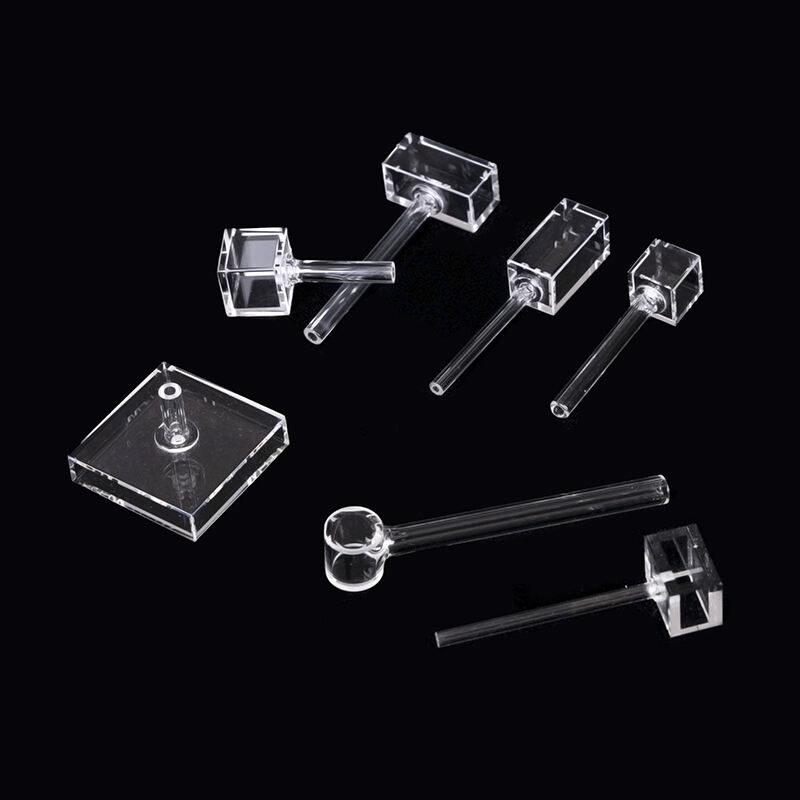FTIR flow cells are specialized tools manufactured by Jinke Optical. It has a lot of literature about different types of chemicals which is useful for scientists and engineers. FTIR itself is a very technical term - Fourier Transform Infrared - but is crucial to understand how this tool works. FTIR flow cells shine a specialized type of light, known as infrared light, through a sample of a chemical. The light interacts with the small bits of the chemical, called molecules. The pattern of light that interacts with these molecules can be used by scientists to determine the specific chemicals that are in the sample.
The flow cell is a vessel that contains the chemical sample. The infrared light passes through the sample as it flows through the flow cell. This can take place rapidly, enabling researchers to analyze multiple samples in a short period of time. This is a crucial speed because it allows scientists to collect all that data in record time, proving extremely valuable for their scientific processes.
The scientists and engineers use FTIR flow cells to study how the chemicals interact with each other. That means they can determine what elements — or fundamental building blocks — are contained in a chemical sample. They can also access the quantity of each element and how those elements fit together. Knowing these particulars is so important for scientists to understand more about the behavior of various materials.
FTIR flow cell can even let scientists watch how a chemical reaction unfolds before their eyes. They can observe how one chemical transforms into another, in real time. As this happens, flow through cell the light makes patterns that encode information about the reaction. These patterns allow scientists to understand precisely how the reaction occurs and which factors could be inducing it. This knowledge is crucial for many applications, from designing new medicines and creating novel materials to making products safe for humans.

In the field of biotechnology, from studying proteins found in cells, scientists could utilize FTIR flow cells to measure such protein interaction using Fourier transform infrared (FTIR)} chromatography. Proteins are important molecules that carry out a lot of work in living things. FTIR flow cell allows scientists to probe proteins to better understand their function, and how they may be used to help sick people. Such research can result in the development of new therapies and treatments that promote health.

In the pharmaceutical industry, FTIR flow cells are useful for providing insight on how drugs interact within the human body. These tools allow scientists to gain insight into how a drug breaks down after it is taken. They can also learn if there are any dangerous byproducts generated in this process that need to be avoided. This research is critical to ensuring that drugs are safe and effective for patients.

Flow cells are cleaned using the correct cleaning solution according to the manufacturer guidelines. If the flow cell is not cleaned properly, inaccurate results and unreliable data may occur. Frequent maintenance, too, and results with the flow cell. This involves verifying the seals in the flow cell, as well as assuring correct alignment of the light source. If they perform regular maintenance, scientists can help the tool to work as best as it can.
With more than 50 years of R&D and manufacturing experience, Jinko Optics has accumulated rich technical and practical knowledge in the field of spectral accessories. For a long time, focusing on the research and development of core products such as cuvettes, flow cells, optical components, and vapor cells has not only improved the company's technical position in the industry, but also enabled the company to quickly respond to various complex application requirements. The accumulation over the years has helped the company to continue to innovate and always be at the forefront of the industry.
As the drafting unit of the national standard for cuvettes, Jinko Optics has very high standards for product quality. Every cuvette and optical component produced by the company follows the ISO9001:2016 standard, strictly controls every link in the production process, from the selection of raw materials to the factory inspection of finished products, to ensure that every product meets high quality requirements. In addition, it has 6 invention patents and 16 utility model patents, reflecting the company's continued investment in technological innovation and process optimization, so that the products not only have excellent performance, but also have unique market competitiveness.
Jinko Optics can provide fully customized solutions for the specific needs of different industries and customers. Whether it is drawings and samples provided by customers or personalized needs for special application scenarios, Jinko Optics can accurately design and produce optical components that meet the requirements. This flexible customization capability is particularly suitable for the precise needs of scientific research institutions, laboratories and specific industries. In addition, the company's rapid response to market changes and customer needs can ensure that customers always get the latest and most suitable technical support and products.
Jinko Optics is committed to providing customers with high-quality products with high cost performance. By optimizing production processes and management processes and reducing production costs, the company can provide more favorable prices while ensuring the excellent performance of products in quality and function. In addition to the excellent quality of the products themselves, the company also pays special attention to after-sales service, providing timely technical support and professional solutions to ensure that problems encountered by customers during use are quickly resolved. This customer-oriented service concept enables Jinko Optics to stand out in the fiercely competitive market and win the trust and praise of a wide range of customers.